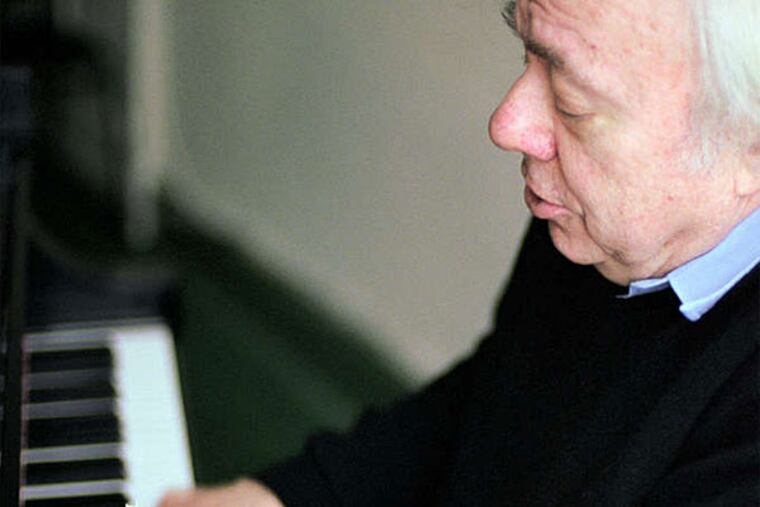Pianist Goode takes a turn for Debussy
Sometimes, the greater the musician, the narrower the path as time goes on. So it seems with pianist Richard Goode, who is presented by the Philadelphia Chamber Music Society at least once every season. On Tuesday, he seemed to be cycling out of two of the three composers on the program, but connecting with the third in ways one normally wouldn't dare hope for.

Sometimes, the greater the musician, the narrower the path as time goes on. So it seems with pianist Richard Goode, who is presented by the Philadelphia Chamber Music Society at least once every season. On Tuesday, he seemed to be cycling out of two of the three composers on the program, but connecting with the third in ways one normally wouldn't dare hope for.
The 70-year-old pianist played from memory what was no doubt an old friend - Schumann's Davidsbundlertanze Op. 6 - though one less welcome than Debussy's Preludes Book I, not played from memory. The composers were hardly kindred spirits, but both created distinctive dream worlds, Schumann with fantastical imaginary character, Debussy refracting natural phenomena into music unlike anything that had been heard before.
Schumann's inner world feels like a refuge, a place of warmth, passion, comedy, and silliness, but not always safety. Goode didn't seem entirely willing to go there Tuesday. The kind of digital precision he brought to some of the piece's more descriptive flourishes gave the music a kind of social realism that kept you at an objective distance, as though to ask, What, exactly, is going on here musically?
Davidsbundlertanze's 18 mini-movements hold up with their thematic cross-references and ongoing wizardry of different registers of the piano, alternately playing tag and going into battle. That approach would've been more convincing had Goode played better. The dropped notes weren't the problem as much as the smudging of bass lines that can act as an aural compass amid Schumann's musings.
This followed a performance of Leos Janacek's On an Overgrown Path so unsympathetic it amounted to little more than pianistic throat-clearing. But a rather different pianist returned after intermission, with Debussy performances that gave themselves over to the composer's highly cogent sense of chaos. That might sound contradictory until you hear a performance like Goode's, in which the music was allowed to be as impulsive as nature, but with a metaphysical rightness.
More prosaically, one could marvel at the incredible subtlety of Goode's coloring, which embraced a surface haziness one associates with Monet paintings, but always had a solid core. Great industry could be sensed behind these performances (ones of this caliber evolve as slowly as the music itself was composed), though, in contrast to Goode's Beethoven, enigmas weren't even questioned, just enshrined.